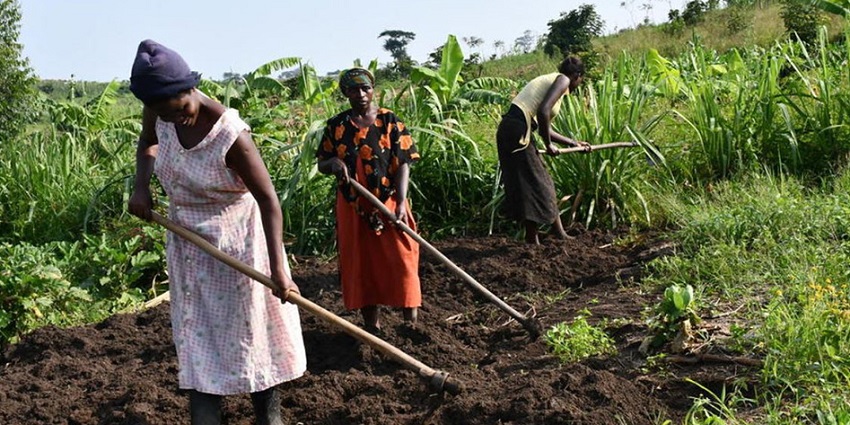AIDS, UNHCR and the Foundation together for the inclusion of refugees in Uganda

© UNHCR
KAMPALA: The Swedish International Development Cooperation Agency (Sida), the United Nations High Commissioner for Refugees (UNHCR), and the Grameen Crédit Agricole Foundation today launched a four-year program to promote access to financial and non-financial services for refugees and host communities in Uganda.
The program is an innovative blended financial approach that combines public and private funds to facilitate financing for refugees and host communities. Access to affordable credit services is essential for refugees to start, create, and expand businesses, meet their daily needs, and be more resilient in the face of emergencies. Furthermore, access to other types of financial services, such as savings, payments, and insurance, is essential to ensure the inclusion of refugees in the formal financial sector and promote their self-reliance and resilience.
An innovative approach
This is a unique program designed to incentivize microfinance investors and financial service providers (FSPs) to expand their financial services to refugees and host populations. The project is currently being piloted in Palorinya refugee camp in northern Uganda and in Kampala, and will gradually be expanded to other targeted refugee-hosting districts.
"This is an effective way to use development aid. We leverage funds from other investors and thus ensure that scarce humanitarian funds can be released to help the most deprived refugees," says Carin Jämtin, Executive Director of SIDA.
The Grameen Crédit Agricole Foundation will provide debt financing to three financial service providers with a guarantee from SIDA, which will also fund the program's technical assistance through its humanitarian allocation. The Foundation will coordinate, with UNHCR, the technical assistance component to help the three FSPs develop a range of products and services, including financial education and business development training, for both refugees and host community members.
Supporting entrepreneurship
For UNHCR, the project is in line with the Comprehensive Refugee Response Framework (CRRF) and responds to the call to work with development agencies and the private sector to find durable solutions for refugees. Many refugees are entrepreneurs, having been entrepreneurs in their countries of origin or possessing entrepreneurial skills to create or expand a business in their host country. Mahoua Parums, UNHCR Representative in Uganda, welcomed this initiative and stated that “financial inclusion is a key element in finding long-term solutions for refugees, as it helps them rebuild sustainable livelihoods. Many refugees decide to start a business once settled in the country of asylum, and microfinance can help them grow their businesses, avoid aid dependency, and make an economic and social contribution to host communities.”
Through this program, refugees will receive training in business management that will equip them with essential skills such as developing business plans, financial education (including bank relations), pricing, and marketing.
“At the Foundation, we are convinced that microfinance institutions, while adapting their products and services, have an active role to play in promoting the financial inclusion of refugees. Digital finance opportunities, in-depth knowledge of the characteristics of each group, regular monitoring, and appropriate non-financial services should stimulate such involvement,” says Eric Campos, Managing Director of the Grameen Crédit Agricole Foundation.
In total, some 100,000 Ugandan refugees and hosts are expected to have access to financial services (credit and savings), including 70,000 women. The project will support the creation and development of small businesses in sectors such as agriculture, crafts, catering, and trade.



Leave a Reply
Want to join the discussion?Feel free to contribute!